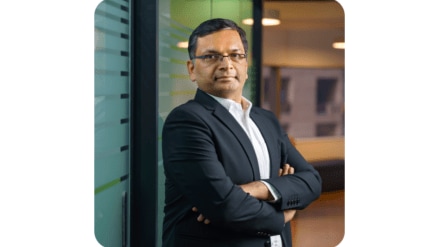Bengaluru-based flexible workspace provider IndiQube reported a 28% year-on-year rise in its revenue to Rs 313 crore in the June quarter, as it leased out more floor space to clients and increased its share of value-added services. Going ahead, the company plans to maintain a growth rate of around 30%, its co-founder and CEO Rishi Das told FE in an interaction.
Operational performance and profitability metrics
In its first quarterly earnings post-listing, IndiQube said its adjusted cash earnings before interest and tax, or simply the cash generated from operations, were Rs 52 crore, compared to Rs 28 crore in the year-ago period. Das added that adjusted cash Ebit is a more accurate measure of operational profitability than Ind-AS Ebitda due to the impact of lease accounting.
Ind-AS accounting capitalises long-term leases as assets and spreads the rental expense over the lease term. This tends to overstate Ebitda in early years while depressing net profit, he said. As a result, in Q1, Ebitda came in at Rs 203 crore, while the bottom line was a loss of Rs 37 crore. In the year-ago period, the company reported a loss of Rs 42 crore.
To remove the impact of lease accounting, the company also provided its financials as per IGAAP accounting standards. According to that, profit after tax stood at Rs 18.5 crore, compared to a profit of Rs 4.6 crore in the year-ago period.
Growth drivers and expansion plans
Growth in the June quarter was mainly driven by a 22% increase in occupied space to 5.5 million sq ft, up from 4.5 million sq ft a year ago, while its occupancy improved to 85% from 81% in Q1 FY25. The company currently manages 8.7 million sq ft, of which 6.5 million sq ft is operational and revenue-generating, while another 2.2 million sq ft is in the committed supply pipeline. “That’s where our growth visibility comes from,” Das said, adding that he expects Ebitda to grow 50% year-on-year, with PAT growth projected higher at 70–80%.
IndiQube added around 1 million sq ft in the past year and aims to reach 10 million sq ft under management within the next 12 months. Das added that the expansion will be focused on both tier-1 cities, such as Hyderabad and Bengaluru, and tier-2 markets, including Coimbatore, Kochi, and Mohali.
The company is primarily focused on large-scale clients, with the majority of occupied areas taken by tenants with over 100 seats. Global capability centres (GCCs) account for 40% of occupancy, with the rest coming from conglomerates, tech startups, and IT services firms.
Not just IndiQube, the flex-space industry is betting on the shift towards distributed offices, and expects return-to-office mandates to sustain growth in the sector going forward. Das added that the industry, as a whole, has been adding 20 million sq ft every year, while the CPRE forecasts that the industry will go to 140-160 million in the next 2-3 years.
